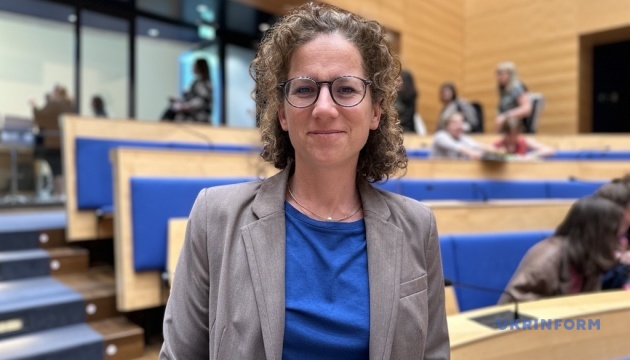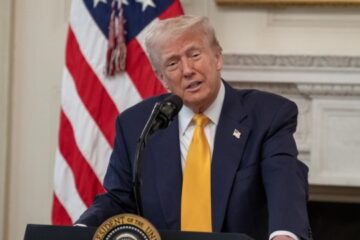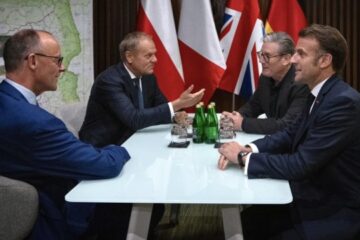
The plan to establish a tribunal to address Russia’s crime of aggression against Ukraine, which could begin functioning as early as 2026, is a sign of hope that the crimes will not go unpunished.
This was stated in a comment to Ukrinform by historian and conflict researcher Julia Eichenberg from the University of Bayreuth.
“Concrete plans for a special tribunal on Russian aggression are a sign of hope,” she said. Eichenberg also noted that there is a real need and demand to create such a tribunal – a kind of “second Nuremberg” for war criminals and those responsible for the crime of aggression itself.
However, she emphasized that Nuremberg was only possible because Germany had suffered total military defeat. Under any other circumstances, such a tribunal would not have been feasible.
“In that sense, unfortunately, there will not be a new Nuremberg. One can only hope that other mechanisms will be found to deal with punishment, as well as to strengthen international law and reinforce the principles of state sovereignty and protection of civilian populations,” the historian said.
She also touched on historical parallels between World War II, whose 80th anniversary of victory was marked on May 8, and Russia’s war against Ukraine. She noted a lingering perception that countries in Central and Eastern Europe are not truly sovereign, but instead seen as “spheres of influence.”
“Many people find it difficult to separate historical events, such as past border changes, from the current reality of an aggressive war – a violation of international law where one state attacks another sovereign nation,” she explained. She said she always tries to convey this to her students by having them look at maps of Germany over the past 200 years to see how borders have shifted. “No one would want to see these borders considered movable again,” she stressed.
Eichenberg called it “very dangerous how easily discussions about Ukraine’s borders arise again, especially when viewed from the outside.”
As for deeper parallels, Eichenberg is less inclined to draw direct comparisons between Hitler’s Germany and modern Russia or between specific individuals. Instead, she sees danger in the mindset. “It’s the way of thinking where sovereign states are spoken of as though they have no right to defend their borders or their countries. I think that is a very dangerous parallel,” she said.
She also expressed hope that Europe today would not be willing, as it once was, to sacrifice Ukrainian territories in the name of peace. At the same time, she urged reflection on how Europe responded to the occupation of Crimea in 2014 when few in Western Europe recognized it as the beginning of war.
“That realization came mostly only in 2022 for Western Europe. But if you look at 2014, people thought this was a price for peace in Europe they could live with. In my view, this was already a dangerous step away from taking Ukraine’s sovereignty seriously. And that worries me,” she said, noting that while she does not engage in politics, she observes these developments as a historian.
In the broader discussion of international law during WWII and today, and now in the context of Ukraine, Eichenberg finds it worth pondering what exactly people mean when they call for peace.
“Does peace mean merely signing an agreement or declaring a ceasefire, which could lead to the international discussion going quiet in the short term? But that would not result in real peace on the ground. And that’s not true peace, because it wouldn’t involve respect for the principle of inviolable borders. One can be sure that people’s rights — civilian rights — would continue to be violated in the occupied territories, and war crimes would continue. That is extremely dangerous,” she emphasized.
As a reminder, Ukraine, Europe, and the United States commemorate May 8 as the Day of Victory over Nazism in Europe. In contrast, Russia celebrates on May 9, using the occasion for propaganda-driven military parades.
Source: No second Nuremberg, yet justice for Russia may still prevail – German historian



